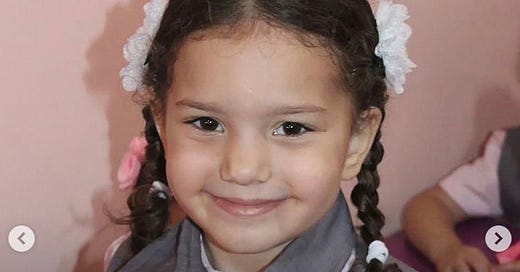I was lying under a pile of blankets, shivering and coughing with the flu, when I heard that Israel and Hamas had agreed in principle to a Ceasefire deal in Gaza after 15 months.
As of the writing of these words, we are holding our collective breath, waiting to see if Israel will vote for the deal.
My mind had been mush for nearly 48 hours. Unable to read. Unable to listen to much or watch anything thanks to the fever. All I had were my thoughts.
When I managed to sit up long enough to check what journalists in Gaza were saying, my heart swelled and broke simultaneously.
Here were relief and devastation, married. Here was the possibility, after 467 days of genocide, to take a breath. To step out of emergency mode for a moment. To count the losses. And what losses there are to count.
Everyone in Gaza has lost someone. Entire families — grandparents, parents, aunts and uncles, cousins, children — have been killed. Erased.
The official number of dead hasn’t changed in months because the infrastructure by which to count them is decimated. And then there are the thousands who died trapped under the rubble of the buildings in which they sheltered. And then there are bodies that were literally vaporized from the force of the bombs that killed them.
To see the relief on the faces of those who have survived the impossible is to feel relief myself. But I am also worried.
I am worried that with a ceasefire, the world will move on.
I am worried that the continued fight for justice for Palestinians will be forgotten.
I am worried that insufficient aid will be allowed to enter Gaza but no one will know or care.
I am worried that the conditions Palestinians have been forced to endure for decades — apartheid, blockade, lack of freedom of movement, lack of equality before the courts, food insecurity, water insecurity, violence, harassment, abuse at the hands of settlers and soldiers, land theft, home theft and home demolition — will continue unabated.
The Privilege to Feel
’s most recent memoir, Class, tells her story of finishing her university degree as she faces every barrier possible, from poverty, to judgement, to ridiculous levels of bureaucracy to access services ostensibly meant to support her and her daughter. In her newsletter, Stephanie describes something I think about often:
“When I was struggling to pay for housing and food, I couldn’t afford to stop and try to process the fact that my car not starting would send me into a panic attack, I just had to figure out a way to get to work. I couldn’t afford to feel.”
I couldn’t afford to feel. This is what I imagine the people of Gaza must be going through. They haven’t had the privilege to feel, the privilege to mourn, for 15 months. This must be where everything starts.
But it cannot be where anything ends.
This carousel of children in Gaza describing what they’ll do when the ceasefire takes effect …
The great
on the ceasefireWords from Breaking the Silence










It's so important that the world lets Palestinians know that we're with them forever and continue to stand with them. ♥️ This is just the bare minimum beginning. ❤️🩹
It's been over 24 hours since I first read about the ceasefire, and I still feel euphoric anytime the word "cease" even appears. It feels surreal in many ways, which is sad in and of itself, considering peace seems like an odd dream now. I pray to God that it won't be broken and that the people of Palestine can feel at ease for once.